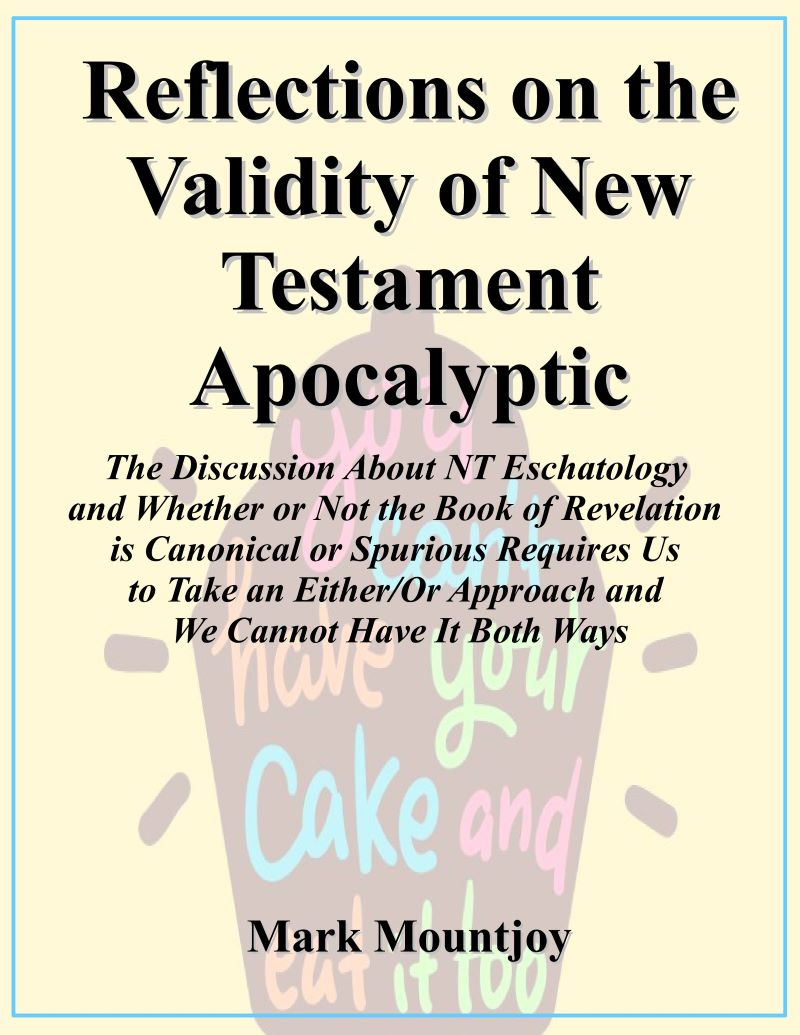[Click the image to review]
Description: Reflections on the Truthfulness of New Testament Apocalyptic argues that the Book of Revelation in the Bible must be either completely true or not inspired at all. It can't be both inspired and untrue at the same time. The author believes that Revelation was written for the seven churches mentioned in the book and that its prophecies were meant to happen soon after it was written. Some people say Revelation was written after the destruction of Jerusalem in 70 AD, but the author thinks it was actually written before that, based on the book's content.
If the apostle John's expectations about the timing of the events in Revelation were wrong, then the book's legitimacy is questioned. The author argues that it doesn't make sense to say nothing in Revelation has happened yet, because that would mean John made false promises. Unlike other books in the Bible, many people don't think the context and audience of Revelation are important. The author disagrees and believes we should consider these factors when interpreting the book. There are different views on Revelation among Christians, and the author believes we should respectfully discuss these differences without being too pushy. It's important to choose when and where to share our beliefs wisely.
In conclusion, the essay suggests that a proper understanding of Revelation involves recognizing its connection to other parts of the Bible and its relevance to the time period in which it was written. The author rejects the idea that Revelation is about a distant future or the end of the world in a general sense.

